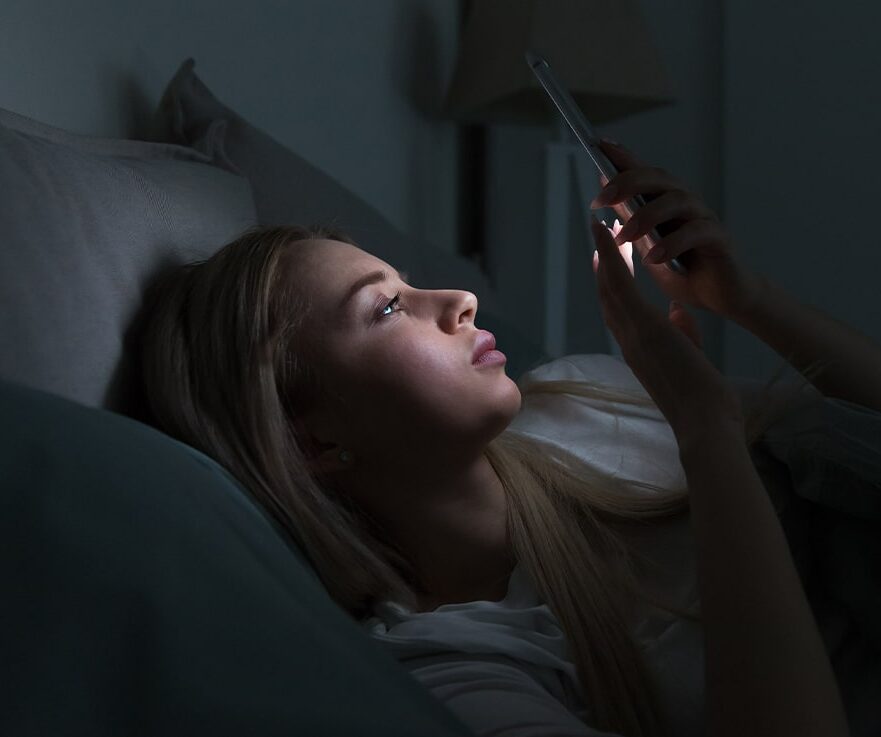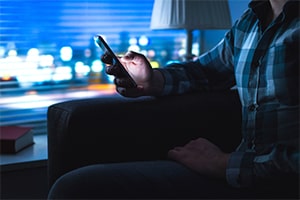Your Questions Answered: How Does Blue Light Affect Sleep?

While the largest source of blue light comes from the sun, we also see it in computer monitors, tablets, and smartphone screens. The close-proximity and long-term use of technology screens raise concerns over the impact it has on our sleep and our eyes. However, not all blue light is bad. In fact, the blue wavelengths from the sun are quite helpful as they boost our mood and assist in setting our circadian rhythms. Overexposure to these blue wavelengths and viewing them at the wrong time of day is what damages our eyes and disrupts our sleep patterns. Research shows that exposure to blue light at night can suppress the secretion of melatonin, which keeps us awake. So, how does blue light affect sleep? We unpack the impacts below.
How Does Blue Light Affect Sleep?

When emitted from a screen, blue light is an artificial color that simulates daylight. Blue light during the day is essential because it helps make you feel more alert. However, when it’s time to go to bed, blue light can throw off your internal body clock and cause you to stay awake. Even more, blue light can limit your melatonin production. Lower melatonin levels can lead to sleep problems like insomnia and sleepiness during the day.
As a short-wavelength light, blue light is energy-efficient. Virtually all blue light passes through the cornea and lens to reach the retina, making our eyes inadequate at protecting themselves from these sometimes harmful rays. Extreme retina damage can lead to macular degeneration, which can cause vision loss over time.
How Can You Protect Your Eyes?
Thankfully, there are some ways to protect yourself from eye strain and other harmful effects of blue light. You can start by lessening your daily screen time to give your eyes a break. While we are accustomed to using our digital devices throughout the day, it’s helpful to discontinue screen use a half-hour to an hour before bed. Doing so will make it easier for you to enter REM sleep. Retailers also sell yellow-tinted computer glasses and blue-blocking screen filters for smartphones and computer screens to ease digital eye strain. Limiting your blue light exposure will increase your body’s release of melatonin, resulting in a better night’s sleep.
Alternatively, CPR Cell Phone Repair carries a line of blue light filtering screen protectors called InvisibleShield with VisionGuard®. By installing these screen protectors with Eyesafe technology on phones and tablets, we are helping clients to not only protect their eyes, but also their devices.
New options for blue-light protection are constantly emerging, but you can take small steps now to combat the impacts on your nighttime routine and improve sleep quality. If you’re dealing with a malfunctioning device or would like to install InvisibleShield with VisionGuard® on your device, get in touch with the experts at your local store. Our local technicians offer fast, affordable, and reliable gadget repair services.
